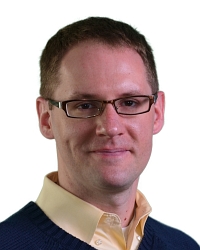TR2023-051
Learning Residual Dynamics via Physics-Augmented Neural Networks: Application to Vapor Compression Cycles
-
- , "Learning Residual Dynamics via Physics-Augmented Neural Networks: Application to Vapor Compression Cycles", American Control Conference (ACC), DOI: 10.23919/ACC55779.2023.10155954, May 2023, pp. 4069-4076.BibTeX TR2023-051 PDF
- @inproceedings{Chinchilla2023may,
- author = {Chinchilla, Raphael and Deshpande, Vedang M. and Chakrabarty, Ankush and Laughman, Christopher R.},
- title = {{Learning Residual Dynamics via Physics-Augmented Neural Networks: Application to Vapor Compression Cycles}},
- booktitle = {American Control Conference (ACC)},
- year = 2023,
- pages = {4069--4076},
- month = may,
- publisher = {IEEE},
- doi = {10.23919/ACC55779.2023.10155954},
- issn = {2378-5861},
- isbn = {978-1-6654-6952-4},
- url = {https://www.merl.com/publications/TR2023-051}
- }
- , "Learning Residual Dynamics via Physics-Augmented Neural Networks: Application to Vapor Compression Cycles", American Control Conference (ACC), DOI: 10.23919/ACC55779.2023.10155954, May 2023, pp. 4069-4076.
-
MERL Contacts:
-
Research Areas:
Control, Machine Learning, Multi-Physical Modeling, Optimization
Abstract:
In order to improve the control performance of vapor compression cycles (VCCs), it is often necessary to construct accurate dynamical models of the underlying thermo-fluid dynamics. These dynamics are represented by complex mathematical models that are composed of large systems of nonlinear and numerically stiff differential algebraic equations (DAEs). The effects of nonlinearity and stiffness may be ameliorated by using physics-based models to describe characteristic system behaviors, and approximating the residual (unmodeled) dynamics using neural networks. In these so-called ‘physics-augmented’ or ‘physics-informed’ machine learning approaches, the learning problem is often solved by jointly estimating parameters of the physics component model and weights of the network. Furthermore, such approaches also often assume the availability of full-state information, which typically are not available in practice for energy systems such as VCCs after deployment. Rather than concurrently performing state/parameter estimation and network training, which often leads to numerical instabilities, we propose a framework for decoupling the network training from the joint state/parameter estimation problem by employing state-constrained Kalman smoothers customized for VCC applications. We show the effectiveness of our proposed framework on a Julia-based, high-fidelity simulation environment calibrated to a model of a commercially-available VCC and achieve an accuracy of 98% calculated over 24 states and multiple initial conditions under realistic operating conditions.
Related News & Events
-
NEWS Ankush Chakrabarty co-organized three sessions at the ACC2023, and was nominated for Best Energy Systems Paper. Date: June 30, 2023 - June 2, 2023
Where: San Diego, CA
Research Areas: Applied Physics, Artificial Intelligence, Control, Data Analytics, Dynamical Systems, Machine Learning, Multi-Physical Modeling, Optimization, RoboticsBrief- Ankush Chakrabarty (researcher, Multiphysical Systems Team) co-organized and spoke at 3 sessions at the 2023 American Control Conference in San Diego, CA. These include: (1) A tutorial session (w/ Stefano Di Cairano) on "Physics Informed Machine Learning for Modeling and Control": an effort with contributions from multiple academic institutes and US research labs; (2) An invited session on "Energy Efficiency in Smart Buildings and Cities" in which his paper (w/ Chris Laughman) on "Local Search Region Constrained Bayesian Optimization for Performance Optimization of Vapor Compression Systems" was nominated for Best Energy Systems Paper Award; and, (3) A special session on Diversity, Equity, and Inclusion to improve recruitment and retention of underrepresented groups in STEM research.

